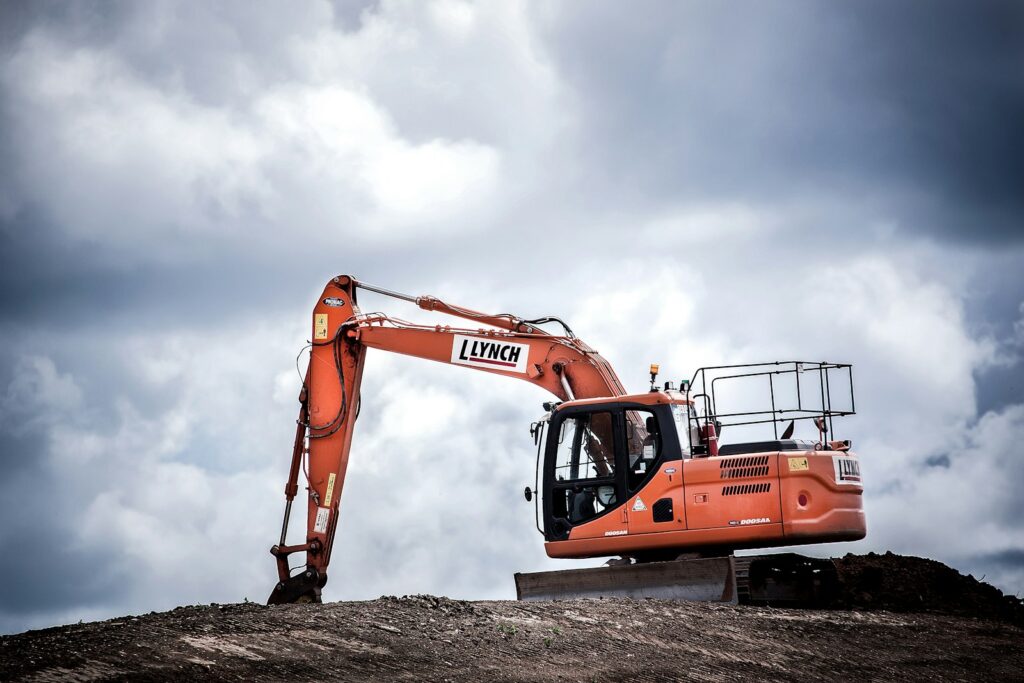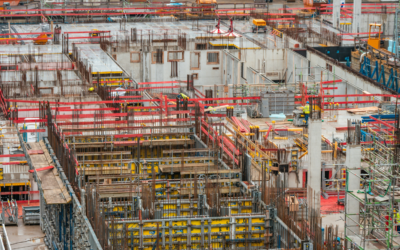Construction projects are complex endeavors that require careful coordination of multiple moving parts. From initial planning to final completion, successful projects depend on skilled professionals who can navigate challenges, manage resources, and deliver results on time and within budget. Construction management serves as the backbone of this process, ensuring that every aspect of a project runs smoothly from conception to completion.
Whether you’re a business owner planning your first construction project or someone considering a career in the construction industry, understanding construction management is essential. This comprehensive guide will explore what construction management entails, the career opportunities it offers, and how professional construction managers work to bring projects to life.
What is Construction Management?
Construction management is the professional practice of overseeing construction projects from initial planning through final completion. It involves coordinating all aspects of the construction process, including scheduling, budgeting, quality control, safety management, and communication between various stakeholders.
Construction managers serve as the central point of contact for construction projects, working closely with architects, engineers, subcontractors, suppliers, and clients. They are responsible for ensuring that projects meet specifications, stay within budget, and are completed on schedule while maintaining the highest safety standards.
The construction management process encompasses several key phases:
Pre-construction planning involves site analysis, permit acquisition, and detailed project scheduling. During this phase, construction managers work with design teams to develop comprehensive project plans and identify potential challenges before construction begins.
Budget management and cost control require construction managers to develop accurate cost estimates, track expenses throughout the project, and implement cost-saving measures when necessary. They must balance quality requirements with budget constraints to deliver value to clients.
Project coordination involves managing subcontractors, scheduling deliveries, and ensuring that all work proceeds according to plan. Construction managers must adapt quickly to changing conditions and resolve conflicts that arise during construction.
Construction Projects and Professional Construction Managers
Construction managers work on diverse types of construction projects, from residential homes to large-scale infrastructure projects. Office buildings, industrial structures, and manufacturing facilities all require specialized knowledge and project management expertise.
Professional construction managers bring extensive experience in construction methods, building codes, and project delivery methods. They understand the complexities of the construction industry and can navigate regulatory requirements, safety codes, and technical specifications that govern modern construction projects.
The construction management association and construction manager certification institute provide professional development opportunities and certification programs for construction managers. These organizations help establish industry standards and promote best practices in construction management services.
Certified construction managers have demonstrated their expertise through education, experience, and examination. The certified professional constructor designation represents the highest level of professional achievement in construction management, requiring advanced knowledge of construction law, contract administration, and business aspects of construction.

Photo by James Sullivan on Unsplash
Construction Management Degree and Career Path
Many construction managers begin their careers with a construction management degree from accredited degree programs. These programs typically cover topics such as construction methods, project management, cost management, risk management, and construction law.
A four-year construction management degree provides comprehensive training in both technical and business skills necessary for success in the construction industry. Students learn about structural foundations, building technology, safety management, and project management information systems.
Some professionals enter the field with a two-year degree combined with extensive on-the-job training. While a high school diploma may be sufficient for entry-level positions, advancement in construction management typically requires formal education and professional development.
Construction managers earn competitive salaries, with the median annual wage varying based on experience, location, and project types. The highest paying jobs in construction management often involve large-scale infrastructure projects, industrial complexes, or specialized construction activities.

Photo by Jeriden Villegas on Unsplash
Is Construction Management a Good Career?
Construction management offers excellent career prospects for individuals with strong leadership skills, analytical skills, and business acumen. The construction industry continues to grow, creating demand for skilled construction managers who can handle increasingly complex projects.
Career opportunities in construction management include positions with construction companies, construction firms, general contractors, and government agencies. Many construction managers eventually start their own construction management services or become project managers for large construction organizations.
The profession offers several advantages:
Diverse project types keep the work interesting and challenging. Construction managers may work on residential developments, commercial buildings, industrial facilities, or public infrastructure projects.
Business growth opportunities exist for experienced construction managers who develop expertise in specialized areas such as sustainable construction, building technology, or project controls.
Professional satisfaction comes from seeing projects progress from initial design to completed structures that serve communities for decades.

Photo by Luke Besley on Unsplash
How Construction Managers Work
Construction managers coordinate multiple aspects of construction projects simultaneously. They begin by reviewing project design documents, technical drawings, and specifications to understand project requirements and identify potential challenges.
During the construction phase, construction managers supervise construction projects by monitoring progress, ensuring quality standards, and addressing issues that arise. They work closely with other construction specialists, including civil engineers, architects, and trade contractors.
Project controls are essential tools that construction managers use to track progress, manage costs, and ensure compliance with project schedules. Modern construction managers utilize project management information systems to monitor all aspects of project performance.
Safety management is a critical responsibility for construction managers. They must ensure compliance with safety codes, implement safety protocols, and maintain safe working conditions on the construction site throughout the entire process.
Cost control and budget management require construction managers to track expenses, approve change orders, and implement cost-saving measures when necessary. They must balance quality requirements with budget constraints while keeping projects on schedule.

Photo by Ümit Yıldırım on Unsplash
Single-Source Design-Build Solutions
Leading construction companies like South Coast Improvement Company have revolutionized construction management through integrated design-build services. This approach eliminates conflicts between designers and builders by creating a single source of accountability for both design and construction.
The design-build project delivery method allows construction managers to simultaneously coordinate design and construction activities throughout the whole construction project’s progress, resulting in more efficient project schedules, more quality management on the job site throughout the entire project, and reduced costs. This streamlined approach has proven successful, with companies like South Coast Improvement maintaining over 90% repeat business since 1990.
Professional construction management services that utilize the design-build approach can identify long-lead items early, develop strategic bid packages, and prepare detailed construction schedules that minimize delays and control costs.

Photo by Sven Mieke on Unsplash
Your Next Step in Construction Management
Construction management represents a dynamic and rewarding career path that combines technical expertise with business acumen and leadership skills. Whether you’re considering construction management as a career or need professional construction management services for your next project, understanding the complexities and opportunities in this field is essential.
The construction industry continues to evolve with new technologies, building methods, and project delivery approaches. Professional construction managers who stay current with industry trends and maintain their professional development through certification programs and continuing education will find abundant opportunities for career advancement and business growth.
For those seeking experienced construction management services, partnering with established firms that demonstrate proven track records of success can make the difference between project challenges and project success. Contact South Coast Improvement Company to learn how their design-build approach and construction management expertise can bring your construction vision to reality.
Learn More About Construction Management
Whether you’re pursuing a career in the field or overseeing your own construction project, understanding the fundamentals of construction management can save time, money, and stress. These other resources provide insights into best practices, project phases, contract administration, cost estimating, scheduling, and more.
Helpful Resources:
- Construction Management Association of America (CMAA)
- U.S. Bureau of Labor Statistics – Construction Managers
- Project Management Institute – Construction Projects.
- The Balance – What Is Construction Management?
- Procore Construction Management Guide
- Construction Dive
- Autodesk Construction Cloud Blog
- Lean Construction Institute (LCI)
- Coursera – Construction Management Specializations
- National Institute of Building Sciences
- Smartsheet – Construction Project Management 101
View Our Work
Aspen Dental
Partnering with The Aspen Group on the construction of a new Aspen Dental facility that’s functional & welcoming for patients & staff alike. South Coast Improvement Company was awarded the construction of a new Aspen Dental facility in Killingly, CT. The...
Springhouse Senior Living – HumanGood
Designed to enhance comfort & functionality. South Coast Improvement company was hired by HumanGood for an interior and exterior renovation at Springhouse Senior Living. Our skilled teamtransformed the 2nd through 5th floor common areas into brighter, more...







